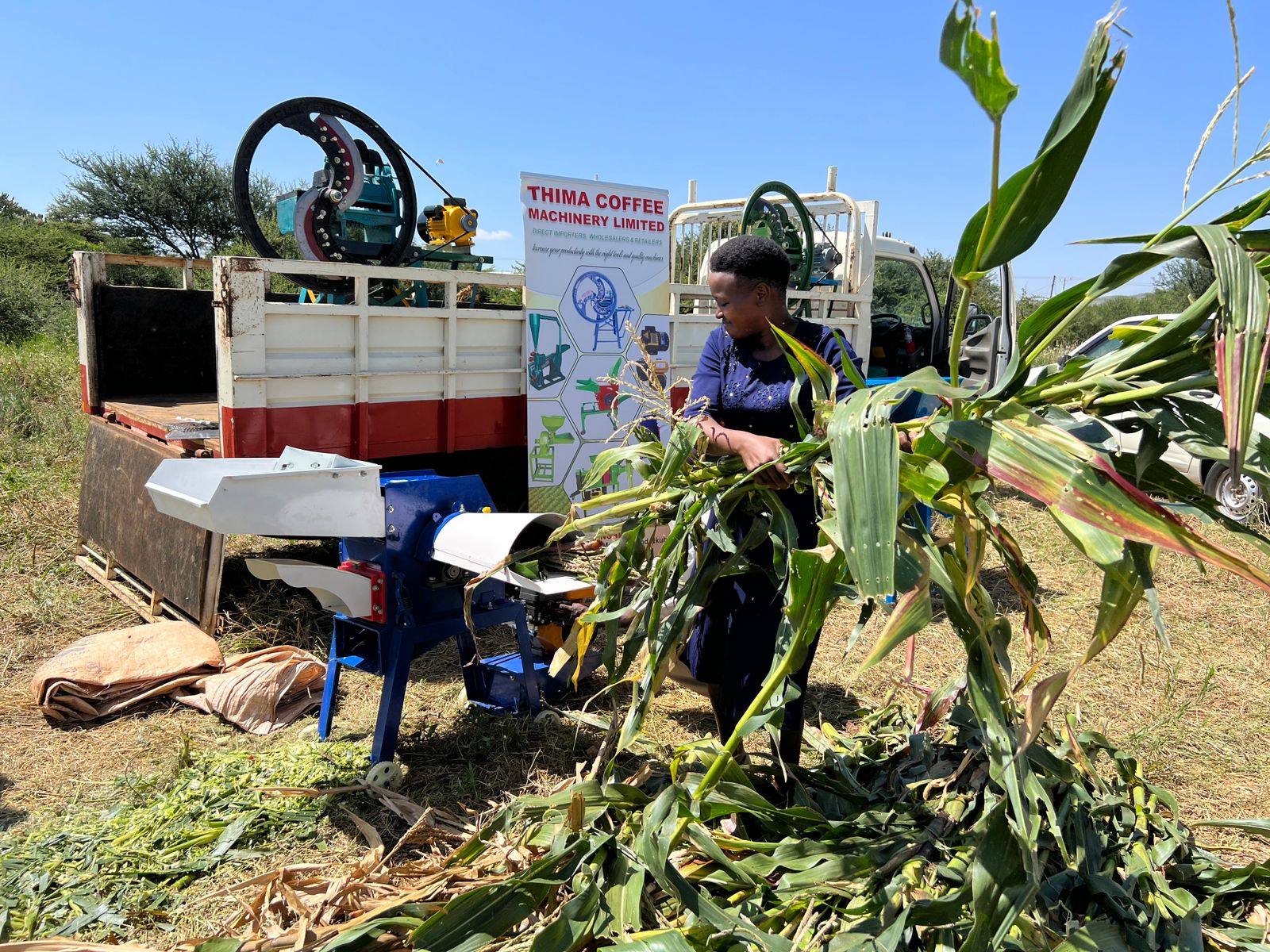On January 24, 2024, Lewa Conservancy, in collaboration with the Alliance of Bioversity International and CIAT, hosted an impactful farmer field day at Munanda Primary in Meru County.
The event, conducted under the umbrella of ‘Accelerating the Impact of CGIAR Climate Research for Africa (AICCRA)-CIAT’ project, attracted around 500 farmers and 35 exhibitors. These organisations included financial institutions and various agricultural stakeholders, such as processors, agricultural machine suppliers, and integrated pest management experts.

Close to 500 farmers attended the event (Photo by John Kimani).
The partnership between Lewa and AICCRA is dedicated to developing and disseminating knowledge, tools, and technologies aimed at helping farmers adapt to and mitigate the impacts of climate change. The field day served as a crucial platform for farmers to learn about innovative agricultural practices, connect with stakeholders, and access services and products that can elevate their income while contributing to environmental protection.
Following the event, Project Coordinator Ivy Kinyua emphasised, “AICCRA prioritises knowledge dissemination, and this event served as a platform for various agriculture stakeholders to converge, share, and learn essential insights around farming. AICCRA remains committed to fostering partnerships and creating avenues for information exchange and learning that will empower farmers.”

AICRRA Project Coordinator Ivy Kinyua (Photo by John Kimani)
Lawrence Mutuma, the Head of Community Development at Lewa, underscored the event’s significant achievement in connecting farmers with various stakeholders and educating them about services and products that not only enhance agricultural income but also contribute to environmental protection. He stated, “Through our consistent efforts, farmers can adapt to climate change and improve their agricultural practices, leading to higher crop yields, diversified income streams, and reduced vulnerability to climate-related shocks.”
Lewa’s Agricultural Extension Officer, James Muthaura expressed his enthusiasm for the substantial turnout of farmers and stakeholders, with some travelling from as far as Leparua in northern Kenya. “The event was highly successful, with well-represented exhibitors, students, and farmers attending from as far as Leparua in northern Kenya and Ntirimiti in Meru County ,” he said.
In his capacity, Muthaura has directly observed the significant challenges confronting farmers in these regions as they grapple with the consequences of climate change. He underscored the widespread occurrence of crop losses, attributed to the severe impact of both drought and intense rainfall. The heavy rainfall, leading to flooding and waterlogging, coupled with surges in blight—a plant disease commonly activated by prolonged periods of rain—has further compounded the challenges faced by farmers in these areas.
“The struggle has been particularly intense during the last rainy season, following severe droughts in previous years,” he remarked, highlighting the ongoing challenges and the urgent need for initiatives that address the resilience and sustainability of farming communities in the face of changing climatic conditions.







